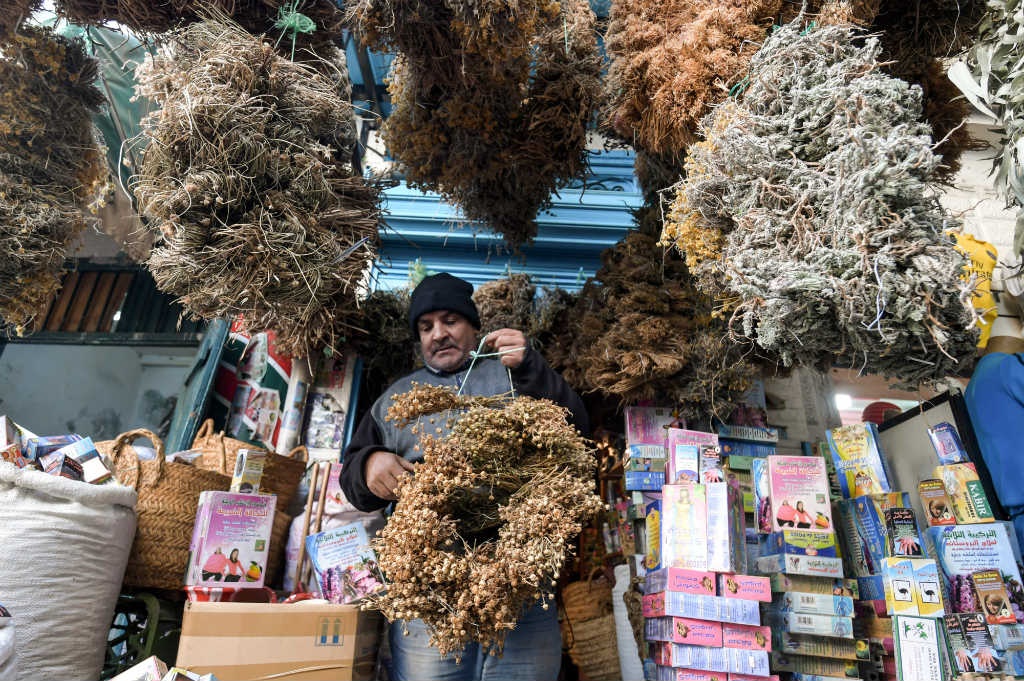

Tunis – There is no known cure for the new coronavirus (Covid-19) but in the medicinal herbs souq in Tunis, anxious Tunisians are consulting with herbalists and stocking up on traditional remedies.
“I am afraid for my father, who is old and sick, so I have come here to look for plants to boost his immunity,” said Baya, a 43-year-old civil servant.
Tunisia has reported 20 Covid-19 cases since 2 March. While no deaths have been reported, authorities have taken tough measures to halt the spread of the disease and fewer customers are crowding the paved alleys of the capital’s ancient medina.
But in the heart of the old city, Tunisians continue flocking to the Souk el-Blat and its herbalist stalls, where flasks, powders and dried herbs are stacked high.
Local and imported herbal medicines are traditionally valued for warding off winter flu, which shares some symptoms with the new coronavirus – a respiratory infection that has killed more than 6 000 people worldwide.
‘No medicine nor miracle plant’
Fear of contagion has seen a rush on garlic, sending the price soaring to 25 dinars (eight euros) a kilo, while other customers look for plant remedies that are effective and affordable.
“I can understand people falling back on tradition,” said Hedi Oueslati, a pharmacologist and Tunisia’s director general of health.
“But there is currently no medicine nor miracle plant effective against the new coronavirus.”
READ | First coronavirus death in Morocco, as DR Congo confirms first case
He continued: “If we’re talking about a grandma’s remedy that is not dangerous and poses no problems, OK.”
But, he added, “you have to be careful not to fall for quackery”.
Some people were profiting from public anxiety to sell “concoctions” with unknown ingredients, he warned.
‘Ancestral remedies’
“What can I take for coronavirus?” Hanen Oueslati (no relation to the health director) asked a vendor at a stall selling fresh rosemary and oregano.
“I want plants to sterilise the home and others for making herbal infusions,” said the 38-year-old woman.
“The goal is to protect us, that’s all, especially since there is no medication against the virus,” she said.
Fethi Ben Moussa, a 61-year-old herbalist, explained: “Tunisians love everything traditional and natural: in times of panic they trust in the remedies of our ancestors.
READ | Sudan suspends flights over virus fears
“People are asking for things to prepare at home like thyme, ginger and moringa,” he said, claiming that they were “good for immunity and fighting viruses”.
At another shop, Haj Mohamed offered preparations of ginger, jujube honey and turmeric that he claimed, without evidence, are “100% effective against viruses”.
A second generation herbalist, he claimed these are “magic ingredients for fighting all kinds of flu”.
But Dr Chokri Hamouda, the director general of healthcare in Tunisia, has a warning: “Just because it’s natural doesn’t mean it’s not harmful.”
